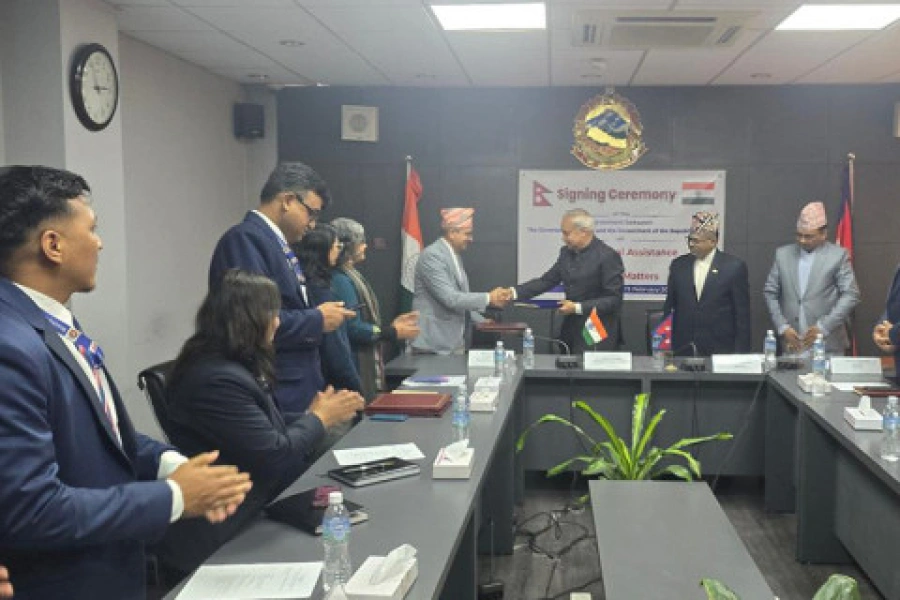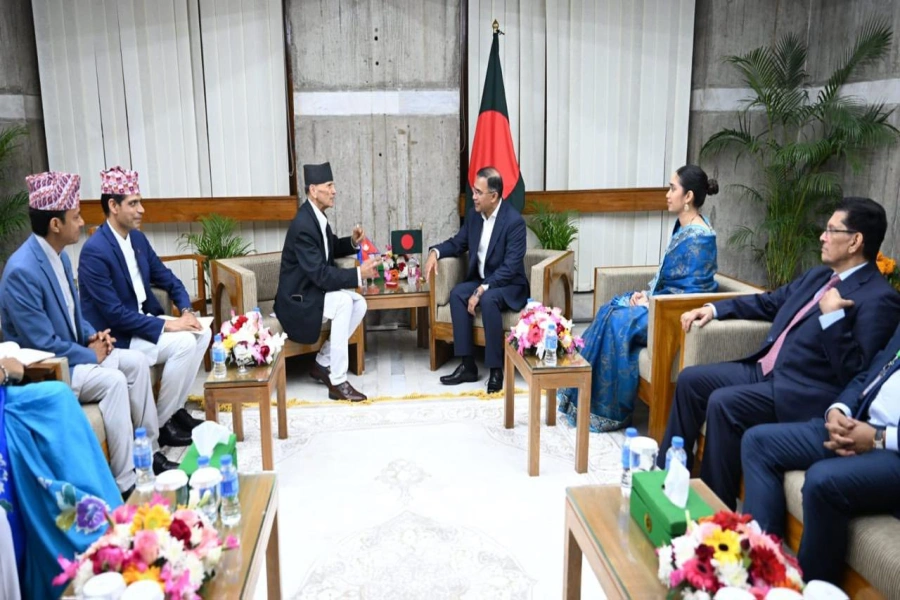The world today has over 190 nation states with different sets of national interests. In our part of the world, the diversity among nations is impressive. Both to the north and south of Nepal we have two great nations that are on the way to superpower status in the next 30 years or so, if not earlier. Similarly, in South Asia, we have India, one of the largest countries in the world, but also the Maldives, which is one of the smallest. In between, we have large-sized nations like Pakistan and Bangladesh as well as middle and small sized countries like Nepal and Bhutan. All of them want to promote what they consider their national interest. This process is characterized by a determination to assert one’s independence in decision making while being simultaneously aware of the imperative to accept interdependence, and at times even dependence, including in some cases the dictates and jurisdiction of international agencies.
NEED FOR A NEW PARADIGM
From a geopolitical perspective, South Asia is a conflict zone characterized by continuing tension between India and Pakistan. Similarly, the relation between China and India is both collaborative and competitive. Nepal is a part of this conflict zone, sharing over 1,700 km border with India and about 1,400 km with China. In geographic, cultural and economic terms, our links with India are deep and extensive. At the same time, China has historical links with Nepal and a growing economic presence in the country. China’s presence to the north is a significant geopolitical reality for Nepal.

Nepal’s geostrategic situation was keenly understood by Prithivi Narayan Shah who united all hill kingdoms over 250 years ago into a unified and centralized state. Shah described Nepal as a yam between two stones and reminded his people that the British ruler to the South is clever and cunning. At the same time he pointed out that it is important to maintain links with the Chinese emperor. The yam metaphor has since been a powerful concept in Nepal’s relation with its neighboring countries.
After Shah, Jung Bahadur was probably the most important foreign policy strategist of Nepal. As was the practice in his day, he killed all his political opponents and assumed the role of the prime minister of Nepal in 1846. He then made two strategic decisions. First, he decided to align with the interests of the British India, a rising power, even as the Chinese power was in a decline. Second, Jung kept Nepal isolated from the outside world and ruled the country like a personal fiefdom of the Ranas. These two characteristics continued until the end of the British rule in India. In the meantime the regime signed a trade treaty with the British in 1923 and allowed the recruitment of Nepali young men to fight for the empire. Nepal now had a ceremonial king and an executive prime minister with absolute power whom the British allowed to rule the country as a sovereign and independent nation, as long as Nepal followed the strategic interests of the empire.
But after India’s independence, there have been many ups and down in the relationship between the two countries. Basically, we in Nepal have not yet been able to articulate in depth our national interests as it relates to India. This has given rise to one-sided treaties like the Koshi and Gandak and even an attempt to establish military check posts inside Nepal in the name of security. Naturally, this has created a legacy of suspicion that is most evident in the use of Himalayan water resources. Similarly, India’s interest and involvement in the national politics of Nepal, most significantly the 2005 12-point agreement between the Maoist and non-Maoist parties in New Delhi, has created ambivalence in the relationship. It has, at times, allowed Nepali politicians to cover up their inability to solve internal political issues by blaming India. This has also unnecessarily given rise to a revival, albeit only occasionally, of what could be called a viceroy syndrome, a legacy of the Indo-Nepal ties in the past. Nevertheless, the responsibility of establishing a mature relationship between the two countries that takes into consideration what I would call “shared concern” and “shared prosperity” paradigm, with the cognizance of the emergence of China as a rising international power, is now essential.
ISSUES OF MUTUAL INTEREST
The shared concern and shared prosperity paradigm attempts to broaden the consensus between any two nations so as to enhance mutual understanding of each other’s objectives and constraints, which are the building blocks to peace and prosperity over time. This brings into focus the concept of national interests. Operationally, national interest consists of three core elements: polity, economy and security. All three elements are linked to the notion of shared concerns and shared prosperity.
The first element of national interest is political. Nepal has remained independent all through its history, even during the time of the British Empire and its overarching influence. This is a legacy and precious gift that we would like to preserve and pass on to the future generations. From Nepal’s viewpoint, this should be a shared concern of both the countries. A sovereign, politically strong and democratic Nepal is in our mutual interest. It fulfills Nepal’s fundamental national political interest while at the same time it strengthens India’s security environment. This conclusion is based on the logical assumption that a strong, politically stable and democratic Nepal is in the best national interest of Nepal as well as India.
The second component of our shared concern should be security of both Nepal and India since we share 1,750-km open border that has over the years been a positive example of people to people relationship. Both countries have to make sure that the open border is not used by undesirable elements to promote violence, terrorism, instability or economic distortion in either country. When my then-Rastriya Prajatantra Party was in the government in the mid 1990’s (with myself as the foreign minister of Nepal), we tried to follow this thinking to its logical conclusion and urged India to agree to some mechanism of regulating our border, while not limiting the free movement of people. The idea was to have some kind of mechanism to track the movement of people between two nations, so as to discourage undesirable elements from misusing the open border, without in any way restricting the free movement of people. The Indian side appreciated this logic and a formal document to take this process forward was signed in the mid-1990s. We formed a committee consisting of home secretaries of two countries to come up with a working model. However, except holding a few meetings, nothing has been done to take this process forward.
But I think all governments in Nepal, including the current Maoist-led government, have made it a policy to ensure Nepal is not used for activities inimical to Indian interests. Nepali politicians, whichever party they belong to, realize that a secure, prosperous and democratic India is the best guarantee of a peaceful, prosperous and democratic Nepal. In line with this thinking, India should also play its part to control elements, whether political or criminal, who try to operate in Nepal from the Indian soil by taking advantage of our open border. This should be an element of shared concern for both our nations. Similarly, if there are other issues that are of security concern to India, as friends we must be ready to discuss them in an atmosphere of mutual trust, and Nepal should try to be as helpful as possible while remaining within the parameters of a sovereign, independent and democratic state that is accountable to its citizens.
This is a first of a two-part article. The second part will be published tomorrow.
The writer is former foreign minister
prakash_dr@hotmail.com
Shifting paradigm in farming






































